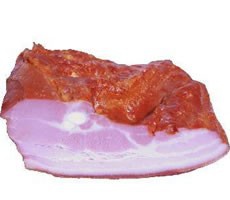 File photo
File photo
A new study has discovered eating large amounts of unprocessed meat creates a greater risk of getting an inflammatory bowel condition.
Analysing information about the diets of more than 46,000 men in the US, researchers discovered 764 developed the condition, called diverticulitis, over a period of 26 years.
The study also found those who ate the highest amounts of red meat had a 58 per cent higher chance of getting the disease compared to those who consumed the least.
Writing in the journal Gut, the scientists said: “We found that intake of red meat, particularly unprocessed red meat, was associated with an increased risk of diverticulitis.
“Substitution of unprocessed red meat with poultry or fish may reduce the risk of diverticulitis.
“Our findings may provide practical dietary guidance for patients at risk of diverticulitis, a common disease of huge economic and clinical burden.
“The mechanisms underlying the observed associations require further investigation.”
Diverticulitis, according to the NHS website, produces small bulges or pockets in the lining of the intestine.
This can, in turn, cause lower abdominal pain and make people feel bloated.
This less serious form is known as diverticulosis and some people do not have any symptoms.
Full-blown diverticulitis can result in severe abdominal pain, especially on the left side, a fever and diarrhoea or frequent bowel movements.
The NHS suggests a high-fibre diet “can often ease symptoms” of the milder form of the disease while antibiotics can be used to treat the more serious version.
“People aged 50-70 who eat a high-fibre diet (25g a day) have a 40 per cent lower chance of admission to hospital with complications of diverticular disease – compared to others in their age range with the lowest amount of dietary fibre,” the website adds.
However Dr Carrie Ruxton, of the UK’s Meat Advisory Panel, told the Independent: “This is yet another exercise where a large observational study is milked to produce statistical links between diet and reported disease 25 years later.
“It is highly unlikely that the results represent a real causal link between red meat and diverticulitis, particularly as the association was not seen in processed meat, which tends to be higher in fat and salt than fresh red meat.
“Indeed, the authors themselves noted that ‘pathways through which red meat consumption may in?uence risk of diverticulitis are yet to be established’.
“The best way to lower the risk of diverticulitis and diverticular disease is to boost fibre intakes significantly to 30g per day, as recommended by the Scientific Advisory Committee on Nutrition.
“Current intakes in the UK are less than 20g. Lean red meat, around five times a week in modest amounts, can be a nutritious part of a high-fibre diet”.
Cancer is one of the leading causes of death in the world today. An estimated 7.6 million people lose their life due this deadly disease. As a WHO report declares processed meat as one of the possible causes of cancer, we take a look at some of the components around us that can cause cancer.